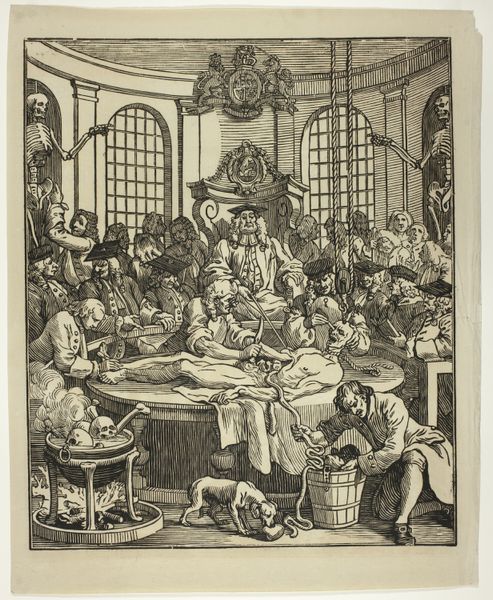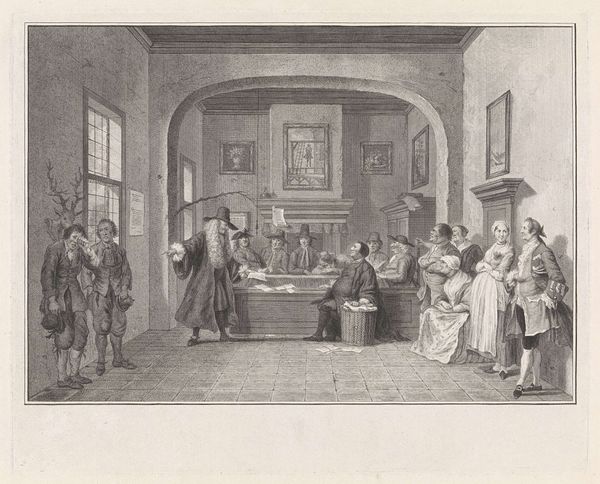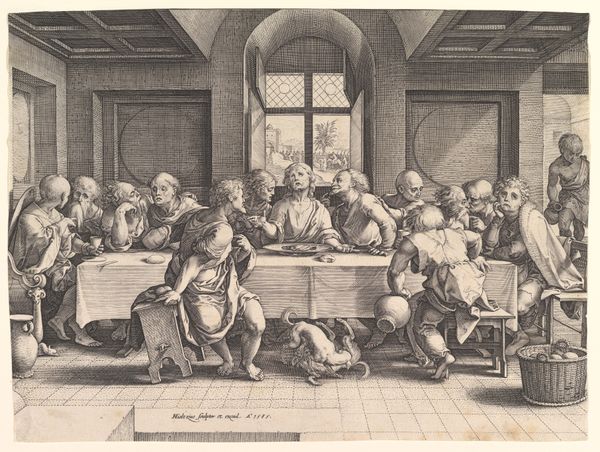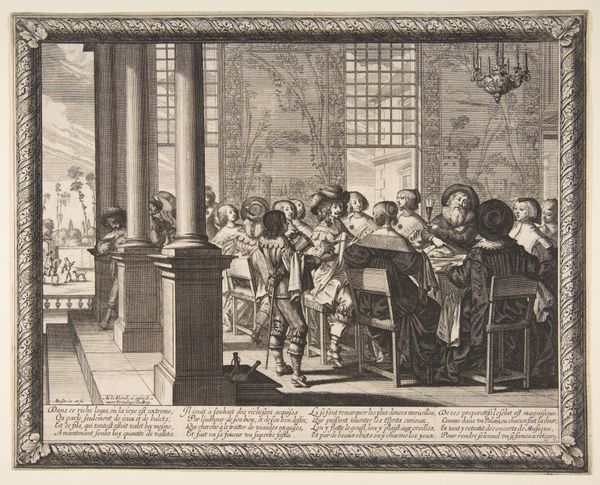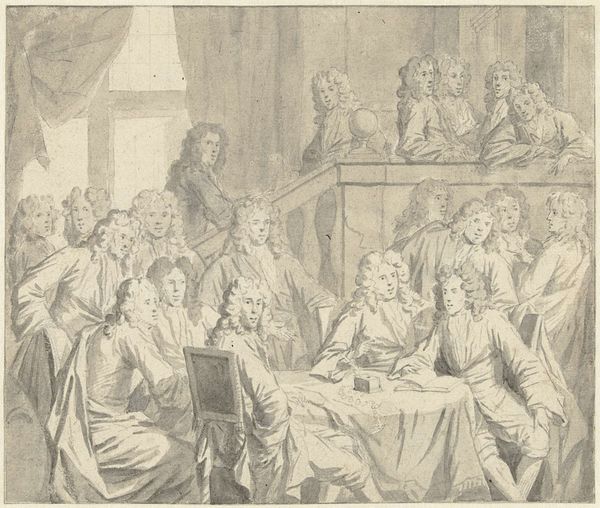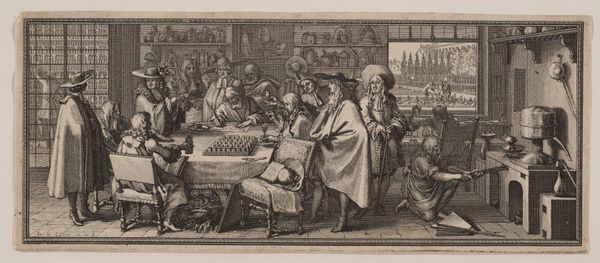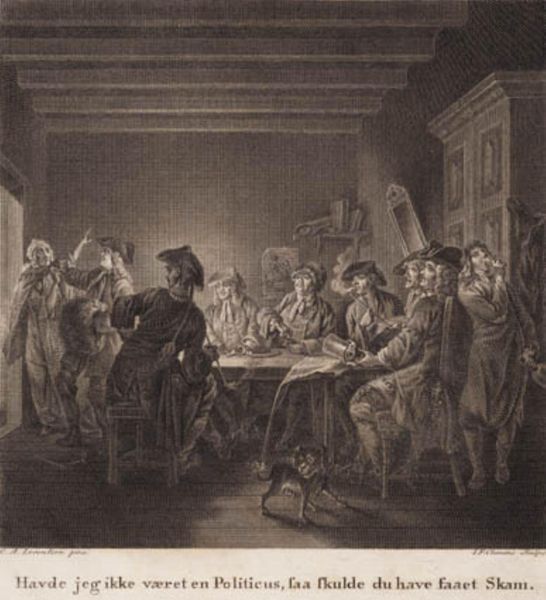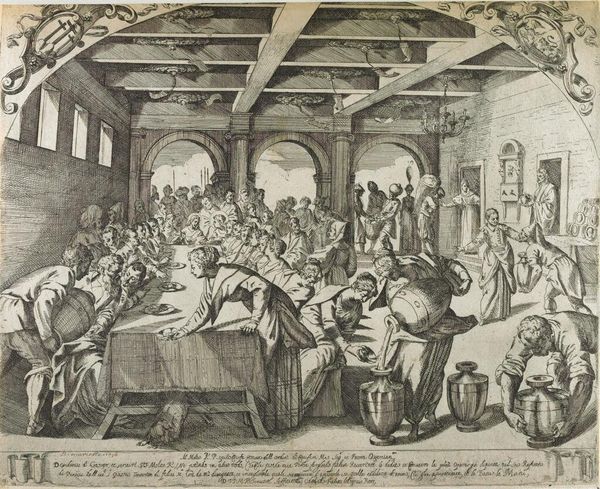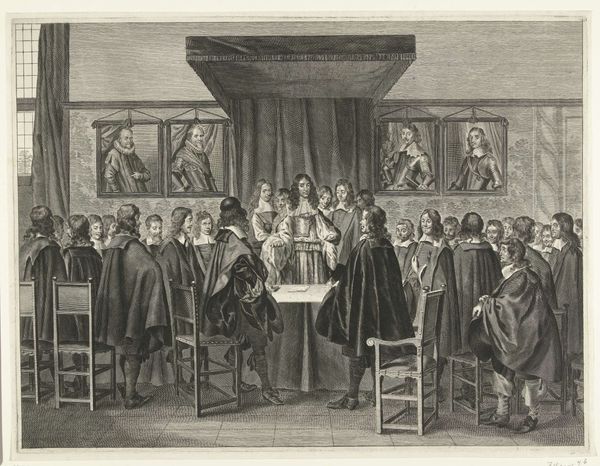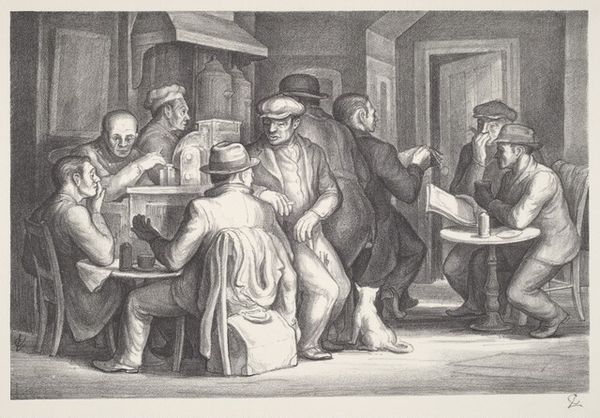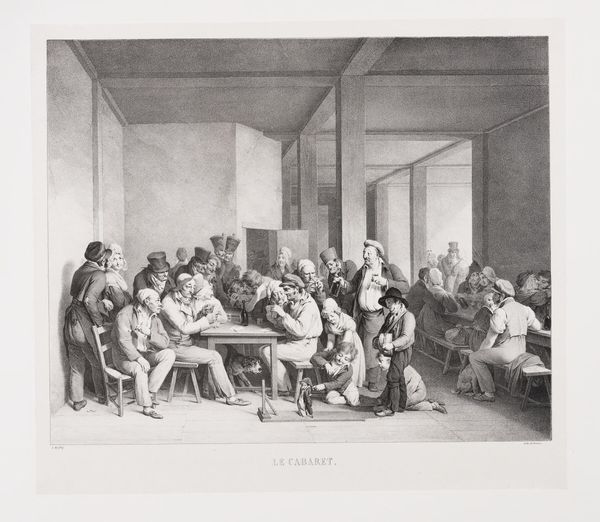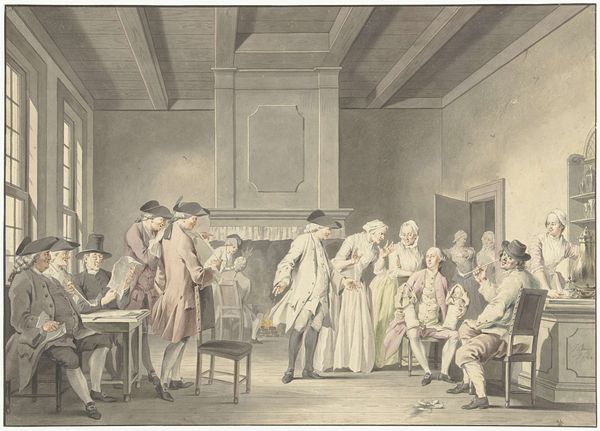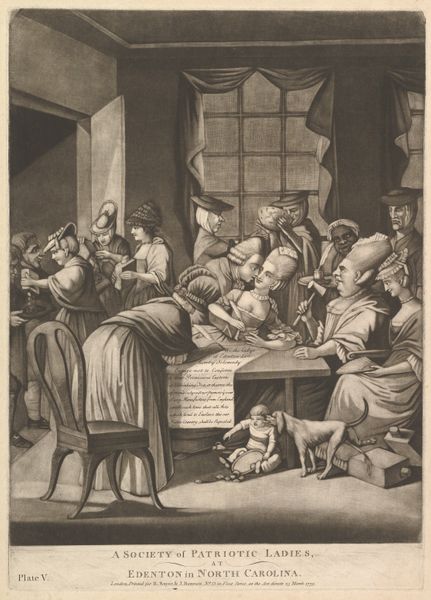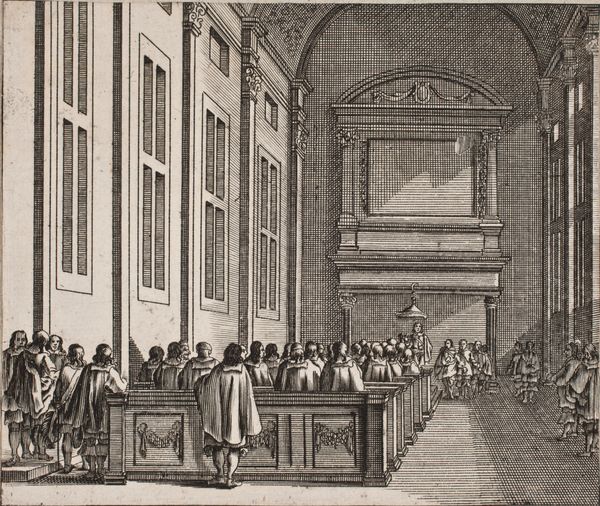
print, engraving
#
allegories
#
allegory
#
narrative-art
#
baroque
# print
#
london-group
#
figuration
#
15_18th-century
#
genre-painting
#
history-painting
#
engraving
Copyright: Public domain
Editor: This is William Hogarth’s “The Reward of Cruelty,” from 1751. It's an engraving, so it’s all in black and white, and the scene is, well, gruesome! There’s a body being dissected, skeletons looking on… what am I supposed to make of this? How do you interpret this work? Curator: Hogarth uses very potent symbols in this image. Note the hanging figure being dissected: Do you observe any parallels to religious iconography of the crucifixion or martyrdom? How does Hogarth invert that symbolism here? Editor: Oh, I see what you mean. The elevated platform, the focus of everyone's attention... It’s almost like a twisted religious scene. But instead of reverence, there's horror and…clinical observation? Curator: Exactly. Think about what is being taught, not just physically, but morally. Look closer; how are the roles of science, justice, and societal morality being questioned or, perhaps, satirized through these stark images? The dog eating the heart is an important symbolic element. What might it suggest to you? Editor: Well, a dog is loyal, right? So maybe it’s suggesting that even loyalty can be corrupted or consumed by cruelty? And it just noticed those skeletons overhead, reminding viewers about an unavoidable, future moment! Curator: Indeed. These skeletons aren't just decorations; they’re mnemonic devices for morality. Consider Hogarth’s broader message. Is he merely condemning cruelty, or also commenting on a society that enables or even celebrates it? Editor: It’s more than just blood and guts then; it's like he’s using shock to make people confront some uncomfortable truths about themselves, about society. Thank you, this was horrifying and educational! Curator: A fitting reaction, given Hogarth's intent. Sometimes the most lasting art forces us to confront the darker aspects of humanity. And the continuous return to Hogarth proves he got under people’s skin!
Comments
No comments
Be the first to comment and join the conversation on the ultimate creative platform.
